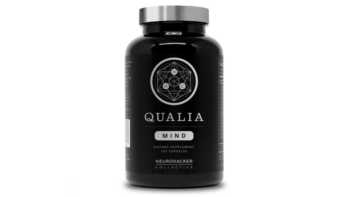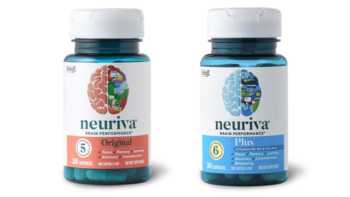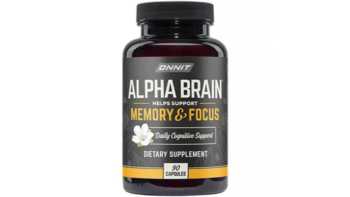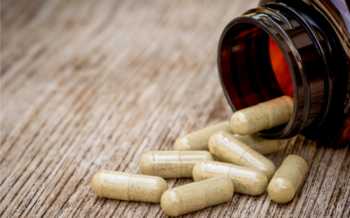
Answer:
Fisetin is promoted for improving brain health, cognition and memory -- although the evidence for this use rests only on animal studies. Laboratory research also suggests that it may extend life-span, have anti-cancer activity and lessen complications of type 1 diabetes. It has been sold as the branded ingredient Cognisetin, by Cyvex Nutrition, and is now sold by the same company as Novusetin.
What it is:
Fisetin is a flavonol with antioxidant properties found in plants such as the Japanese fruit wax tree (Rhus succedanea), and, in very small amounts, in strawberries, tomatoes, onions and other foods. However, you would have to eat about 1 pound of strawberries a day to get the dose typically provided in fisetin supplements (Maher, PLoS One 2011).
The evidence:
Fisetin has been studied by researchers at the Salk Institute for Biological Studies, which owns a patent for fisetin as a memory enhancer (U.S. Patent 7897637 B2). Laboratory and animal studies have found that it protects and promotes the growth of brain cells, and enhances memory in mice (Maher, Proc Natl Acad Sci 2006). A more recent study in mice showed that, taken orally, fisetin crossed the blood-brain barrier and appeared to promote brain cell communication in the hippocampus, a part of the brain associated with long-term memory (He, J Pharmacol Sci 2018).
A laboratory study also found that fisetin decreased senescence in mouse and human fat cells (i.e., it reduced the percentage of senescent, or compromised, cells), and decreased age-related disease and extended life-span in mice (Yousefzadeh, The Lancet 2018).
Fisetin has also been shown to inhibit the growth of ovarian and colon cancer cells in laboratory studies (Jeng, J Cell Physiol 2018; Xioa, BMC Complement Altern Med 2018) but only a single study has shown a possible, limited cancer benefit in people: In that study, 37 people in Iran undergoing chemotherapy for colorectal cancer were given 100 mg of fisetin or placebo daily for seven weeks, resulting in significantly decreased levels of one inflammatory marker (interleukin 8) with fisetin but no decrease in other markers of inflammation, and there was no measurement of clinical outcomes (i.e. cancer progression, etc.) (Farsad-Naeimi, Food Funct 2018).
Fisetin has been shown to lower elevated systolic, diastolic and mean artery pressure in rats with high blood pressure, apparently by promoting relaxation of blood vessels. However, this effect has not been confirmed in humans (Antika, Asian Pac J Trop Biomed 2021).
As of yet, there are no published studies in people demonstrating any effect of fisetin on memory, blood pressure, or any of the other above-mentioned effects in people. Furthermore, there are no long-term safety studies in people for fisetin at the dose provided by supplements.
Dosage:
A dose between 50 and 150 mg day has been proposed as potentially beneficial in people. Most supplements provide between 50 and 100 mg per daily serving and cost between $11 and $15 for a 30-day supply, although combination supplements that contain additional ingredients can cost as much as $45.
Although free fisetin is nearly insoluble in water and expected to have low absorption, particularly if taken on an empty stomach, many supplements containing fisetin have been formulated to increase solubility and bioavailability — although the evidence behind them is limited. For instance, liposomal fisetin (which is included in Lipo Fisetin by Renue by Science) was shown to be up to 47 times more bioavailable than free fisetin in an animal study (Mignet, Int J Pharm 2012), and the label of Lipo Fisetin claims that it can be taken with or without food. Novusetin — an extract of the Japanese wax tree that is standardized to 95% fisetin — claims to have "great stability and solubility," but the data confirming this does not appear to have been published, and one product containing this ingredient (Fisetin Novusetin by Swanson) recommends that it be taken with water while another (Fisetin with Novusetin by Doctor's Best) states that it should be taken with food. If in doubt, it may be best to take fisetin with meals rather than on an empty stomach, as this may promote absorption.
The bottom line:
Results with fisetin in cells and animals are intriguing, but it is too early to know if fisetin is safe and effective for improving memory or any other condition in people at this time.
Join today to unlock all member benefits including full access to all CL Answers and over 1,400 reviews.
Join NowAlready a member? Sign In Here.
Join now at www.consumerlab.com/join/













Submit your comment
This feature is restricted to active members.
Join now to add comments and get all member benefits, including over 1,400 reviews.
Join NowAlready a member? Sign in here.